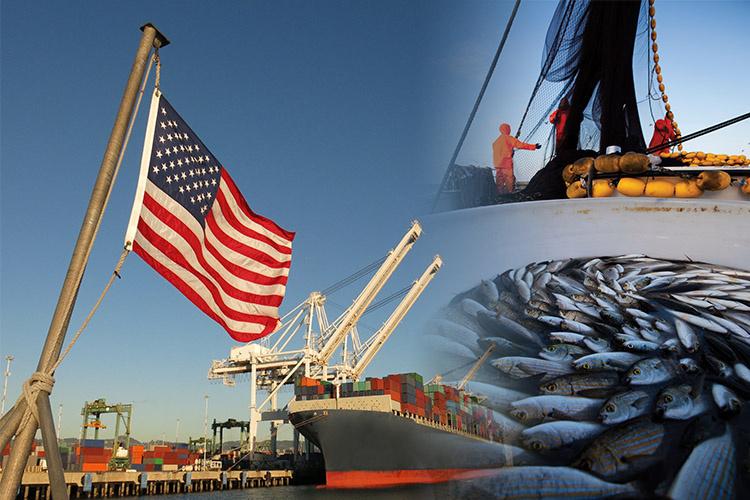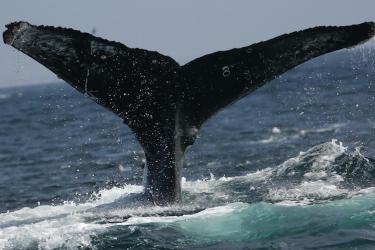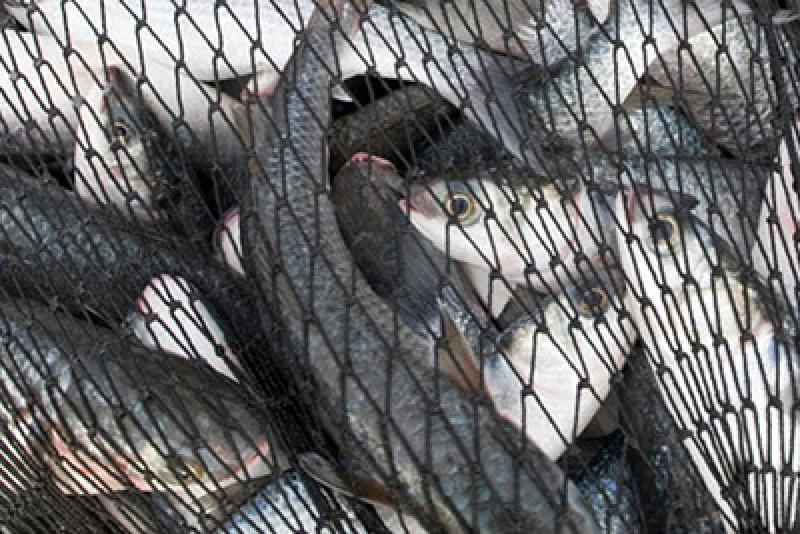The United States imports nearly 80 percent of its seafood. It’s important to ensure that our high demand for imported seafood does not create incentives for illegal, unreported, and unregulated fishing activity. We do this by taking steps, in collaboration with other nations, that prevent IUU fish and fish products from entering our markets.
More ways we combat IUU fishing
Nation Identification
Every 2 years, we identify nations and entities with:
- Vessels engaged in IUU fishing activities
- Fishing activities and practices that result in bycatch of protected species or sharks on the high seas without regulatory measures comparable to the United States
Identification kicks off a 2-year process to remedy the issue. Unaddressed issues could result in import restrictions on fish or fish products.
Nation identification process and reports to Congress
Denying Port Access
The United States is one of 70 parties to the international Port States Measures Agreement. The agreement aims to prevent, deter, and eliminate IUU fishing by preventing vessels engaged in those activities from using ports and landing their catches. The agreement discourages illicit vessels from operating while simultaneously blocking IUU fish and fish products from entering the global supply chain. It’s a great example of how international maritime collaboration can have a significant impact.
Port State Measures Agreement FAQs
Enforcement
We routinely work with other nations to detect and prevent IUU fishing and intercept IUU fish and fish products on their way to markets. We participate in groups like INTERPOL’s Fisheries Crime Working Group and the International Monitoring, Control and Surveillance Network. This coordination supports international efforts to combat IUU fishing and associated crimes at the source. By leveraging these international partnerships, we jointly combat transnational threats related to IUU fishing, human trafficking, and associated crimes in international fisheries.
We have formal agreements with Canada, the European Union, and Russia to combat IUU fishing and the smuggling of IUU fish and fish products. In addition, we coordinate closely with Mexico and Canada to monitor marine products traded across our mutual borders.
Our close relationships with international law enforcement agencies also helps us enforce the Lacey Act, one of the most comprehensive laws for protecting wildlife. The Lacey Act makes it a crime in the United States to buy, have, or sell products that were illegally taken under U.S. or foreign laws.
Trade Monitoring
U.S. Seafood Import Monitoring Program
This program requires importers to follow reporting and recordkeeping requirements to import more than 1,100 unique species from across 13 species groups into the United States. These products were chosen because they are vulnerable to IUU fishing or seafood fraud. Data must be reported from the point of harvest to the point of entry into U.S. markets.
Seafood Import Monitoring Program species and resources
Antarctic Marine Living Resources Program
This program allows us to monitor the trade of Patagonian and Antarctic toothfish through U.S. ports. If the product was caught in waters protected by the Commission for the Conservation of Antarctic Marine Living Resources, fishermen and traders must have met conservation measures set by the commission to import to the United States.
Antarctic Marine Living Resources Program resources
Atlantic Highly Migratory Species International Trade Program
This program sets import and export documentation requirements for bigeye tuna, bluefin tuna, and swordfish. To facilitate enforcement, the program covers products caught in the Atlantic, Pacific, and Indian oceans.
Atlantic HMS International Trade Program resources
Tuna Tracking and Verification Program
This program monitors the domestic production and importation of frozen and processed tuna products. It’s the only program recognized by the U.S. government as satisfying all required regulations for dolphin-safe certification. Fishermen and traders must meet documentation requirements to use the program’s dolphin-safe labeling on their products.
Tuna Tracking and Verification Program resources



